Customize User Interface
The 'User Interface' tab lets you choose the interface language and customize the look and feel of Comodo Internet Security according to your preferences. You can also configure how messages are displayed and enable password protection for your settings.
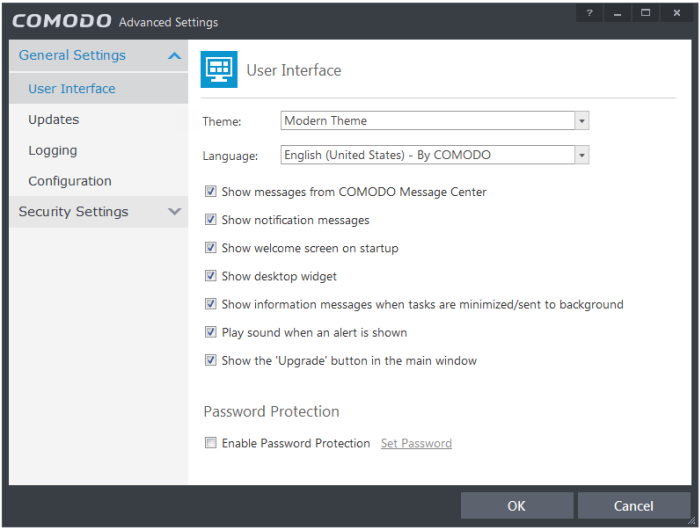
The 'User Interface' settings allows you configure the following:
-
Theme - The 'Themes' drop-down allows you to choose the colors and appearance of the GUI as you prefer. (Default = Modern Theme)
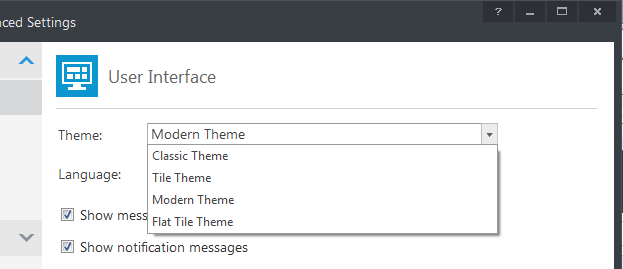
-
Language Settings - Comodo Internet Security is available in multiple languages. You can switch between installed languages by selecting from the 'Language' drop-down menu. (Default = English (United States))
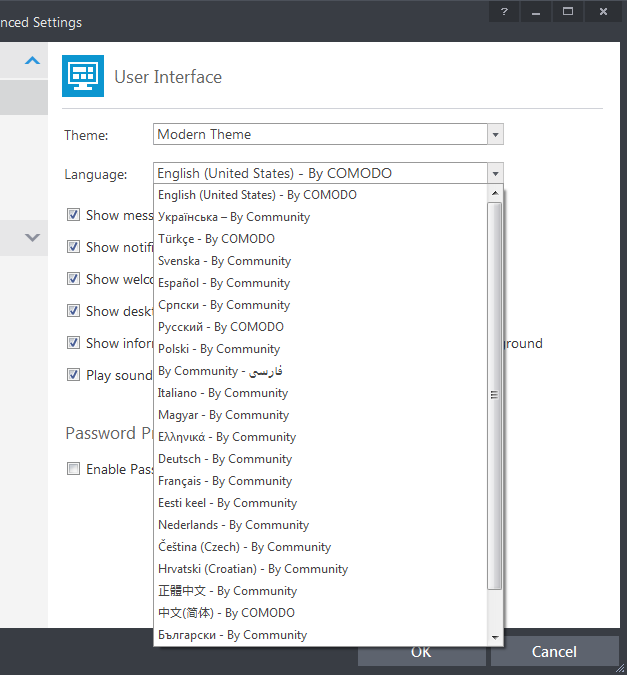
-
Show messages from COMODO Message Center – If enabled, Comodo Message Center messages will periodically appear to keep you abreast of news in the Comodo world.

They contain news about product updates, occasional requests for feedback, info about other Comodo products you may be interested to try and other general news. (Default = Enabled).
-
Show notification messages - These are the CIS system notices that appear in the bottom right hand corner of your screen (just above the tray icons) and inform you about the actions that CIS is taking and any CIS status updates. For example ' Comodo Firewall is learning ' or 'Defense+ is learning ' are generated when these modules are learning the activity of previously unknown components of trusted applications. Antivirus notifications will also be displayed if you have selected 'Do not show antivirus alerts' check box in Antivirus > Real-time Scan settings screen. Clear this check box if you do not want to see these system messages (Default = Enabled).
-
Show Welcome Screen on start up – If enabled, CIS will display a welcome screen when the application first starts: (Default = Enabled)
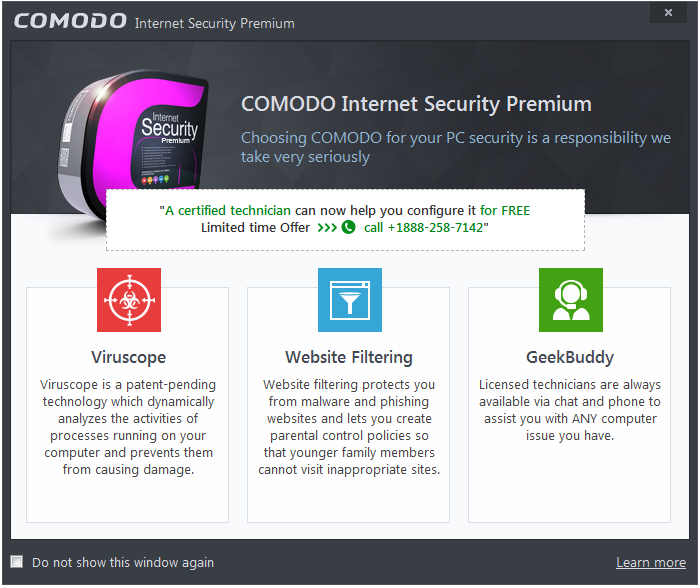
|
Tip: You can disable the Welcome Screen by selecting the checkbox 'Do not show this window again' in the window itself. |
- Show desktop widget – The CIS desktop widget displays at-a-glance information about CIS security status, speed of outgoing and incoming traffic, number of background tasks and links to social networking sites.
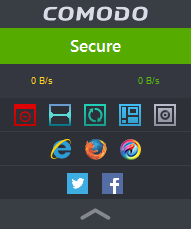
The widget also acts as a shortcut to open the CIS main interface, the Task Manager, your browsers and so on. If you do not want the widget to be displayed on your desktop, clear this checkbox. (Default = Enabled)
|
Tip: You can disable the widget from the CIS system tray icon. Right click on the CIS system tray icon and deselect the 'Show' option that appears on hovering the mouse cursor on 'Widget' . |
-
Show information messages when tasks are minimized/sent to background - CIS displays messages explaining the effects of minimizing or moving a running task like an AV scan to the background:
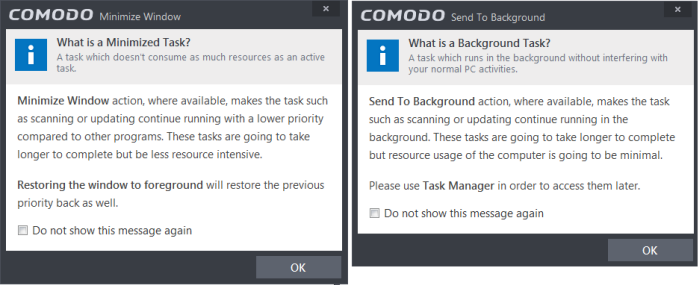
If you do not want these messages to be displayed, clear this check-box. (Default = Enabled)
|
Tip: You can also disable these messages in the message window itself by selecting 'Do not show this message again' |
-
Play sound when an alert is shown - CIS generates a chime whenever it raises a security alert to grab your attention. If you do not want the sound to be generated, clear this check box. (Default = Enabled)
-
Show the 'Upgrade' button in the main window - If enabled, CIS will display the green upgrade button at the top right of the interface. (Default = Enabled)
-
Enable Password Protection - Enforces password protection for all important configuration sections and wizards within the interface. If you enable this feature, you must first specify and confirm a password by clicking the 'Set Password' link. You will then be asked for this password whenever you try to access important configuration areas (for example, all sections in the General Tasks, Firewall Tasks, Sandbox Tasks and Advanced Tasks will request the password).
This setting is of particular value to parents, network administrators and administrators of shared computers to prevent other users from modifying critical settings and exposing the machine to threats. (Default = Disabled)
To enable password protection
-
Select the 'Enable Password Protection' check-box then click 'Set Password'. The Change password dialog will appear.
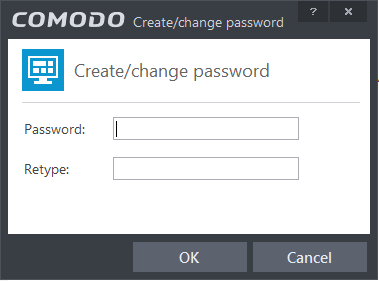
-
Enter and confirm your password then click 'OK.' Make sure to create a strong password containing a mixture of uppercase and lowercase characters, numbers and symbols so that it cannot be easily guessed by others.



